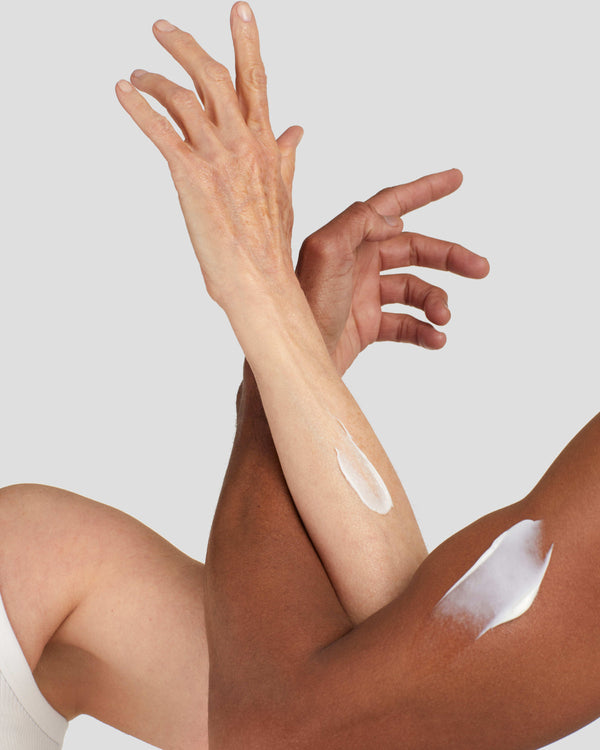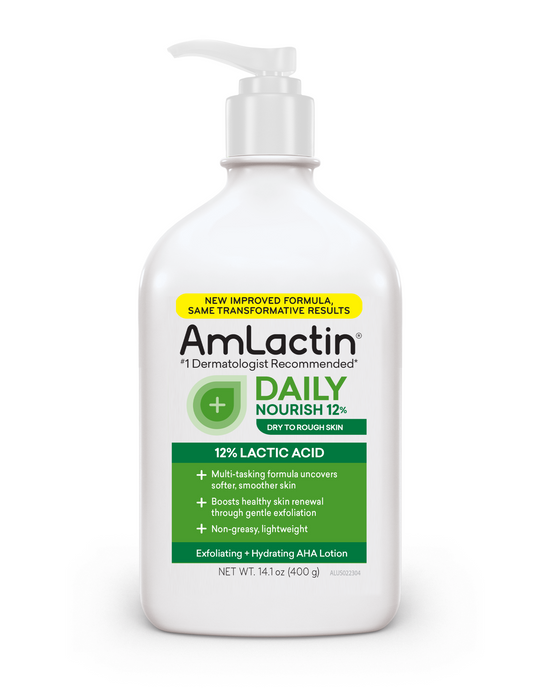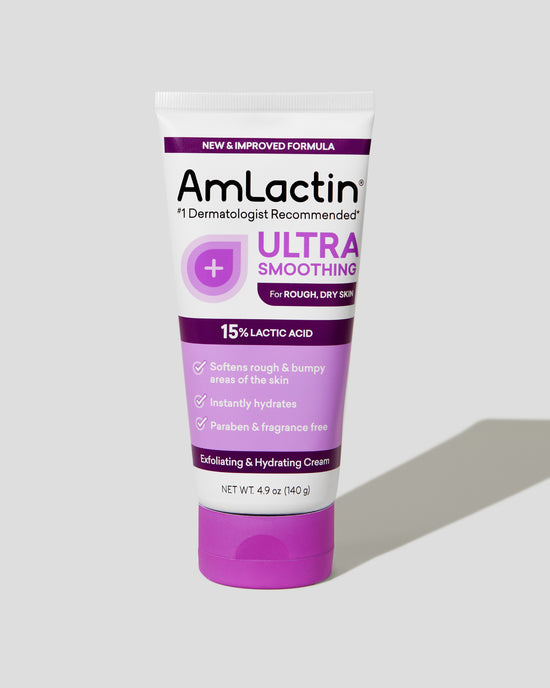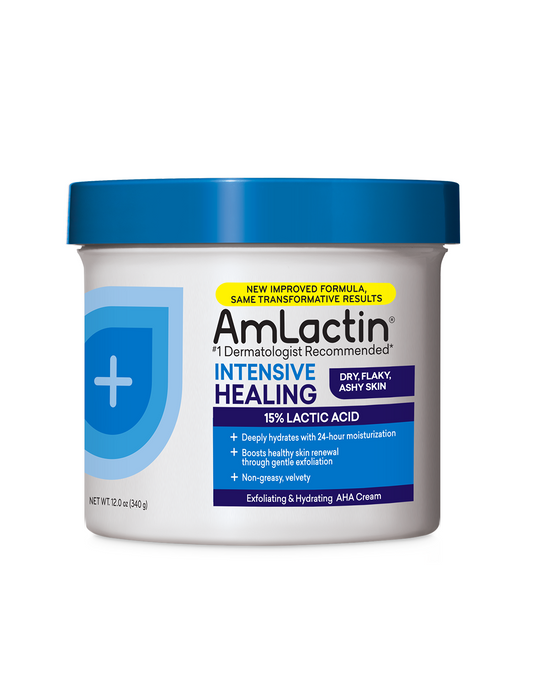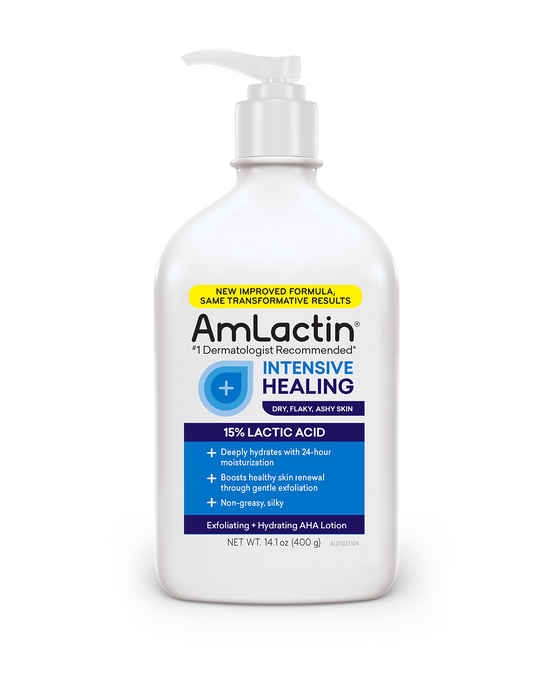You may be familiar with lactic acid in the context of exercise or sports. During intense exercise, especially weightlifting, sprinting, and high-intensity interval training, where your muscles need more oxygen than you’re taking in, lactic acid builds up in your muscles as your cells break down carbohydrates for energy.
But did you know? Lactic acid has become a key ingredient in skin creams and lotions because of its restorative nature.
What Does Lactic Acid Do When You Apply to Your Skin?
Lactic acid is an exfoliant—meaning it helps remove dead skin cells from the outer layer of skin (epidermis) to refresh and reveal smoother skin. It’s considered an alpha-hydroxy acid (AHA), which is a family of water-soluble organic compounds that have certain properties that benefit the skin such as exfoliation.
The benefits of lactic acid for skin
Skin care products with lactic acid may be formulated for the face or body. In different concentrations, lactic acid can help to maintain normal, healthy skin as well as reduce signs of aging and some symptoms of health conditions that affect the skin, such as acne and keratosis pilaris.
Lactic acid skin benefits include:
- Helps increase water uptake and lock in moisture.
- Increases skin cell turnover to boost the skin’s natural renewal process.
- Is gentle enough even for sensitive skin, in most cases.
- Lightens dark spots and helps smooth fine lines and wrinkles.
- Improves texture and appearance for softer, smoother skin.
- Works to retain skin brightness and shine.
Also, while lactic acid is not considered an acne treatment, using skin products with lactic acid can help prevent acne by removing oil and dead skin cells to keep pores clear. If you suffer from acne breakouts, ask your dermatologist whether and how to add lactic acid products to your skin care routine.
Lactic acid side effects
The most important side effect of lactic acid products to be aware of is sun sensitivity, meaning it’s easier for skin to become sunburned. This is common with all AHAs. Because using these products can make your skin more sensitive to UV rays, limit your time outdoors. When you are outside (whether it’s sunny or cloudy), wear sunscreen rated SPF 30 or above or wear protective clothing that shields the harmful rays of the sun.
Even though lactic acid is a gentle AHA, some people may experience some skin irritation when using it. Try using it on a small area first, and if any irritation (e.g., redness, itchiness, rash) lasts more than an hour, then stop using it. Mild irritation at first can be normal, but if symptoms become severe, wash off the product immediately.
If you have sensitive skin, you may want to start with a product that contains only 5% lactic acid and work your way up from there. If you have psoriasis, rosacea, or a similar skin condition, talk to your doctor first before you use any products containing lactic acid. Using an exfoliant—lactic acid or another AHA—may not be recommended.
While skin creams and lotions with lactic acid can typically help diminish age spots and hyperpigmentation (patches of skin that are darker than normal), people with dark skin may be at greater risk of hyperpigmentation when using these same products.
Lactic Acid’s Science-Backed Skin Care Results
When used as part of a regular skin care routine, skin creams and lotions with a lactic acid concentration or higher can reduce the appearance of fine lines and wrinkles resulting in firmer, more supple-looking skin.
All AmLactin® products contain lactic acid and are fragrance free, since the chemicals that help provide different scents are often skin irritants. We even have a formula with 15% lactic acid that helps eliminate the red, dry bumps associated with keratosis pilaris, also referred to as “chicken skin” or “strawberry skin.”
Learn more about lactic acid’s role in body skin care in our “Nourish & Renew” article and how you can create a complete body skin care routine for yourself at any age.

